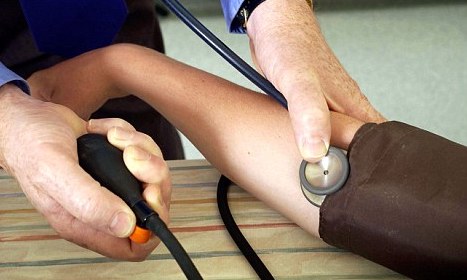Researchers at Johns Hopkins Medicine have raised concerns that incorrect arm positioning during blood pressure readings can lead to misdiagnosis of hypertension. The study examined blood pressure measurements with arms in various positions: supported on a desk, resting on a lap, and hanging unsupported at the side.
Findings showed that resting the arm on the lap overestimated systolic pressure by 3.9 mmHg and diastolic pressure by 4 mmHg. Meanwhile, an unsupported arm hanging at the side resulted in even higher overestimations, with systolic pressure inflated by 6.5 mmHg and diastolic by 4.4 mmHg.
Dr. Tammy Brady emphasized the importance of arm position for accurate readings, recommending that individuals always support their arms on a firm surface like a desk. The study involved 133 adults aged 18 to 80, who had their blood pressure taken after emptying their bladders and resting for five minutes in proper posture.
The results indicate that arm positioning significantly affects blood pressure readings, with unsupported arms yielding the highest measurements. The NHS guidelines state that normal blood pressure ranges from 90/60 mmHg to 120/80 mmHg, while high blood pressure is classified as 135/85 mmHg or higher for home readings and 140/90 mmHg or higher for readings taken in medical settings.















